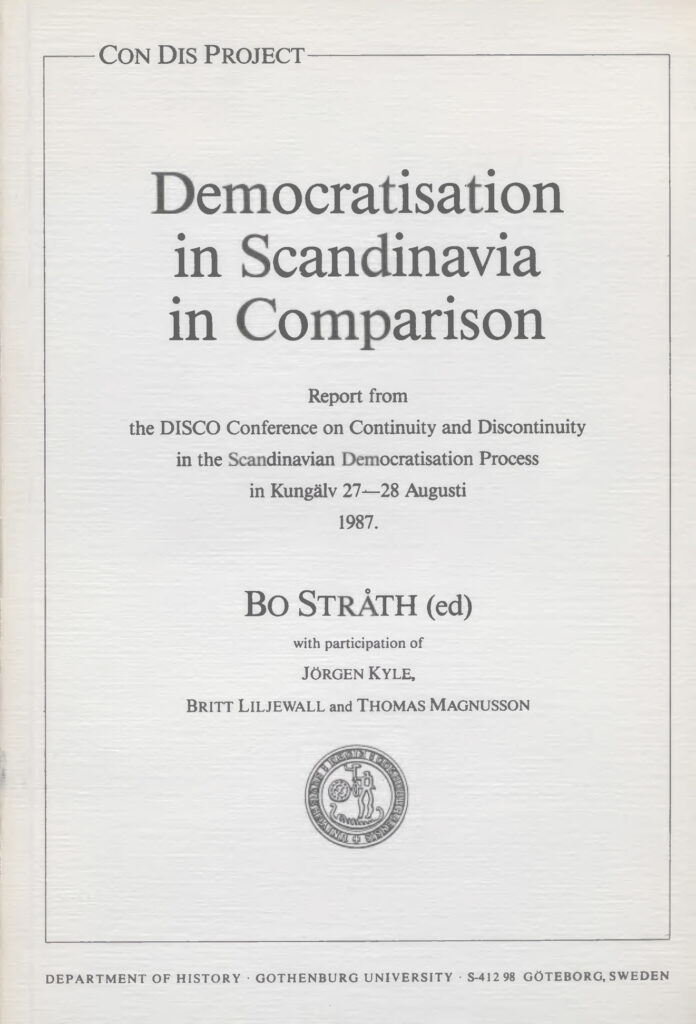
Bo Stråth (ed.), Democratisation in Scandinavia in Comparison. Gothenburg University 1988
Abstract
What long-term prerequisites in Scandinavia have brought about democratisation? What elements of continuity are to be found in the process and what elements of discontinuity? How has continuity been combined with change?
In an attempt to shed light upon such questions, the CONDIS Project (CONtinuity and DIScontinuity, long-term factors of conflict resolution in the democratisation of Scandinavia), which was established in the autumn of 1986 at the University of Gothenburg, Department of History, invited to the DISCO Conference 27-28 August 1987 at the Nordiska Folkhöskolan in Kungälv, some 20 kilometres north of Gothenburg. The questions are of basic interest to the project.
One purpose of the conference was to try to demarcate a Scandinavian development trajectory using empirical examples from various areas in Northern Europe. Such a demarcation will serve as a basis for the continued comparison of Scandinavian, German and French development patterns. Another purpose was to refine theoretical points of departure and questions for scholarly cooperation in such an undertaking. Still, a third purpose was to consider more general problems of methodological and theoretical character. This volume is a report from the conference.




































